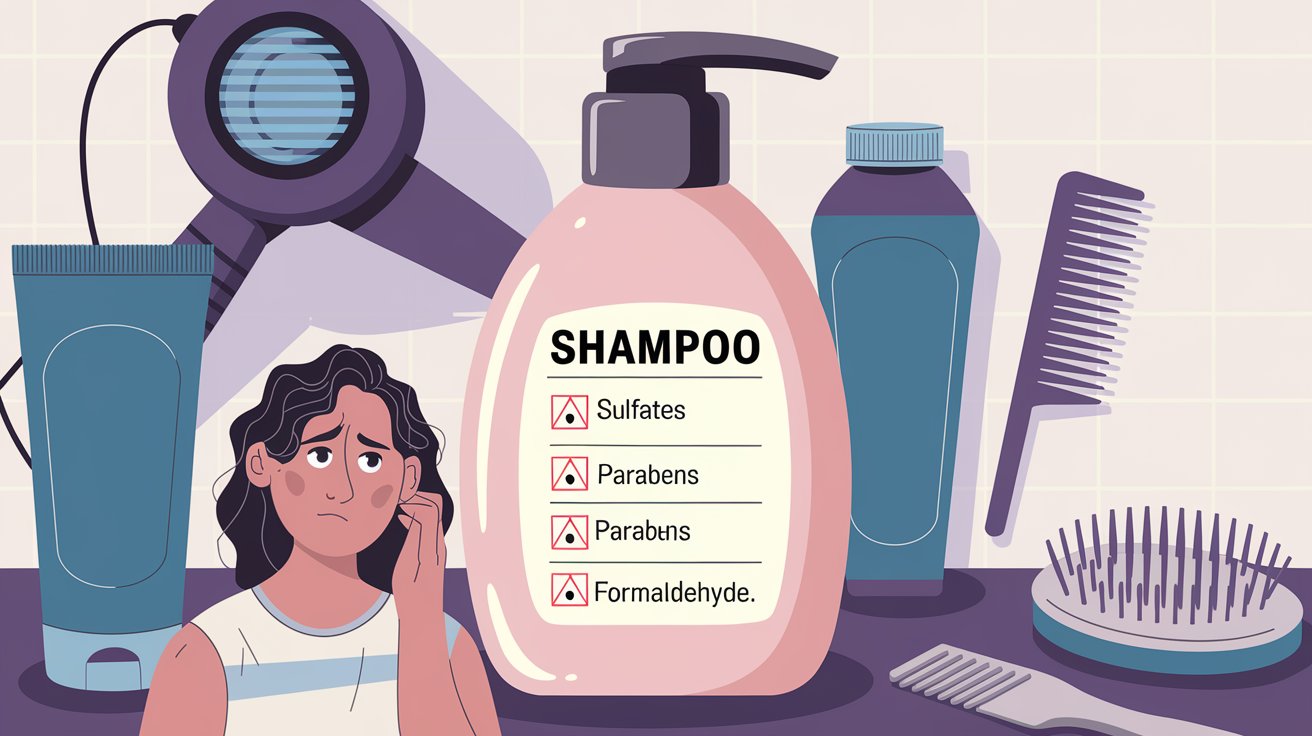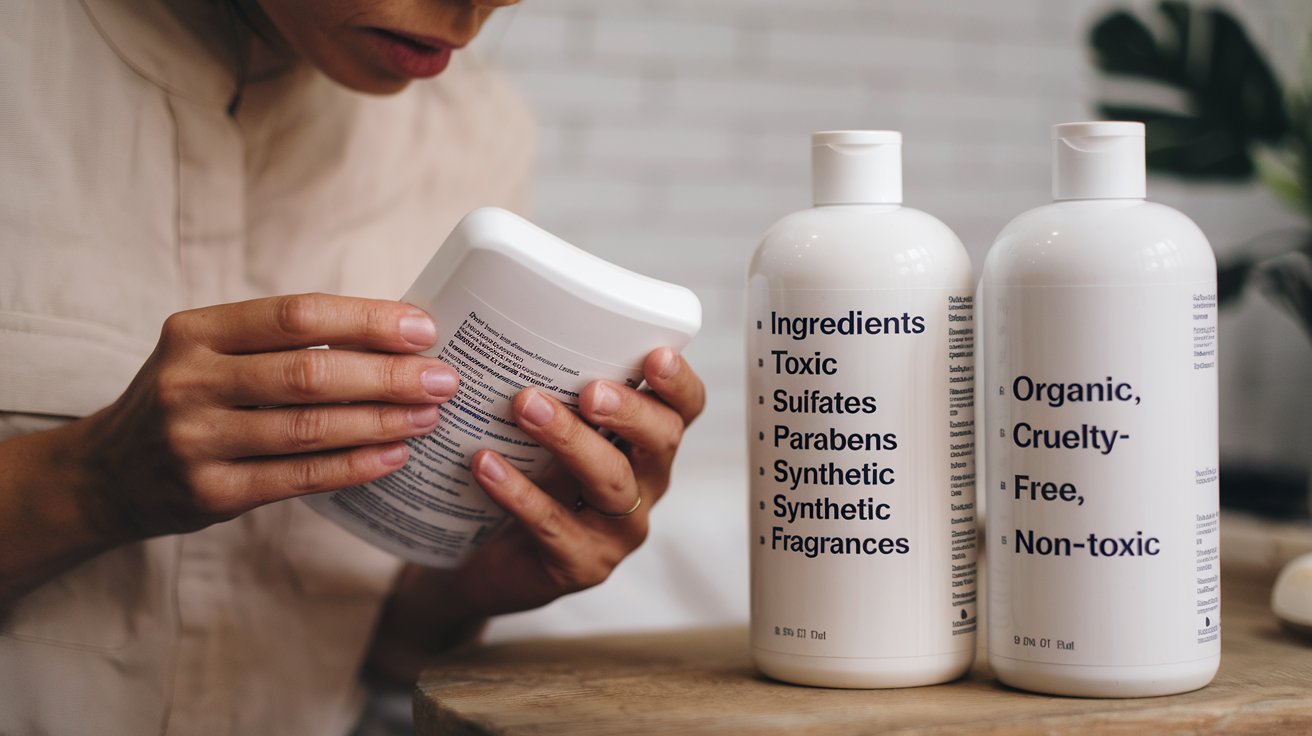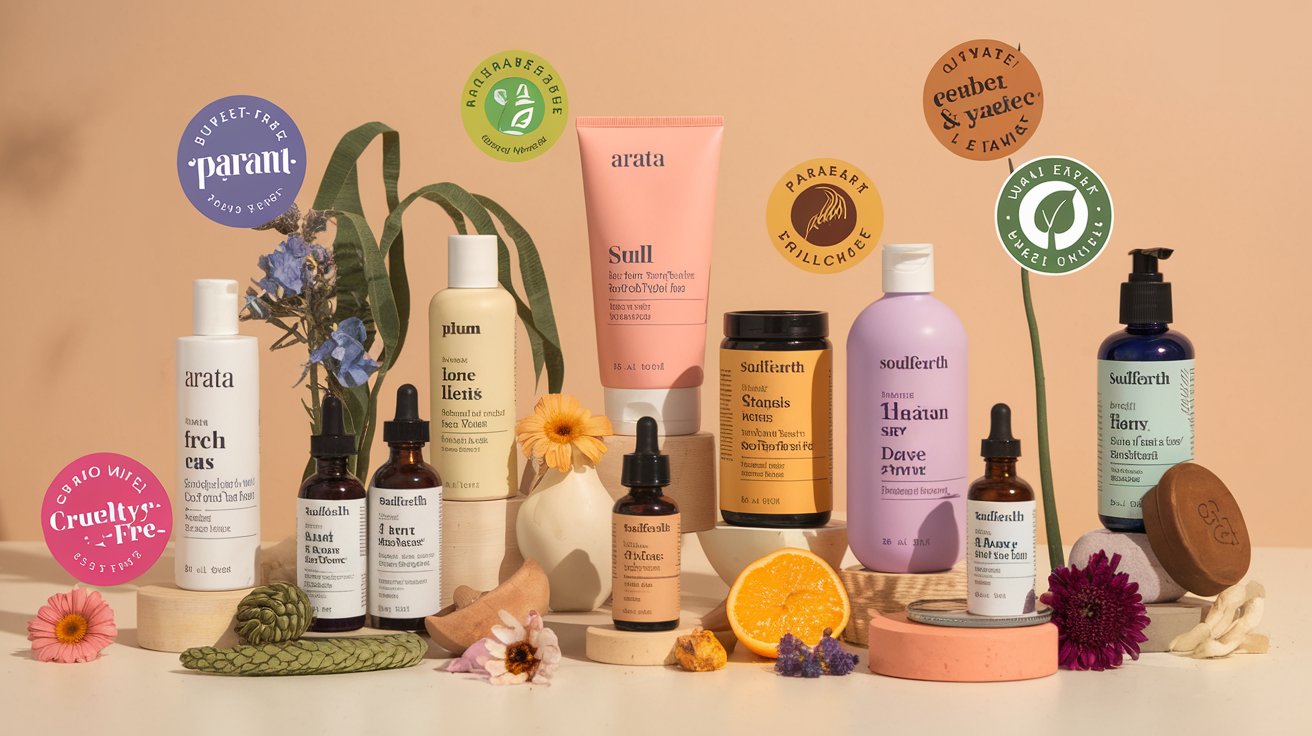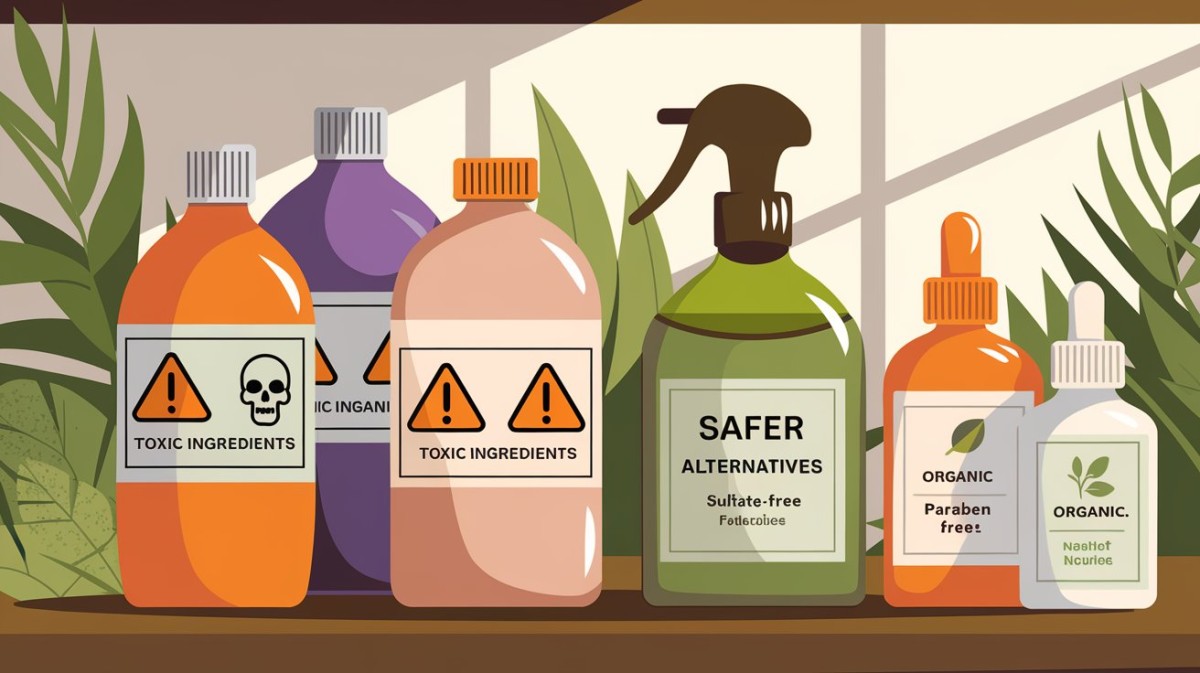In recent times, there has been an increased understanding that some of the utilised ingredients marketed in hair care products are adversely affecting hair health. The increasing awareness of health and environmental issues among consumers has led them to look for superior substitutes of standard commercial products containing toxic ingredients. This blog will focus on revealing some of the typical toxic ingredients used in hair care products, possible health impacts and the healthier alternatives for toxicity-free hair care.
Common Toxic Ingredients to Avoid

1. Sulfates
Examples of the sulfates that are used often as surfactants in shampoos are sodium lauryl sulfate (SLS) and sodium laureth sulfate (SLES) respectively. They assist in making foam and facilitate removal of dirt and oil from the hair. Conversely, sulfates remove the hair’s natural oils leaving it dry and damaged especially for those with sensitive scalp or colored hair. When overused, it causes frizzy hair, split ends, as well as a damaged scalp.
Safer Alternatives: To avoid the use of sulfates, always look for products that use the mild forms of surfactants such as cocamidopropyl betaine or decyl glucoside shampoos. These alternatives also work well to wash the hair without leaving them too dry.
2. Parabens
Parabens are chemicals employed in hair care production as preservatives to avoid the buildup of bacteria as well as moulds in order to increase the durability of the products. Nonetheless, research has linked parabens to another contentious effect as endocrine system inhibitors, which disrupt regular hormone functioning leading to reproductive complications.
Safer Alternatives: Avoid products with ‘paraben’ being listed among the ingredients. It can be replaced by natural preservatives such as rosemary extract or vitamin E which have antimicrobial properties and are also completely safe.
3. Formaldehyde and Formaldehyde-Releasing Agents
Formaldehyde has been classified as a carcinogen and causes respiratory illness, as well as cancer. It is used in treatments for hair straightening and some shampoos as a preservative as well as smoothening agent. For this reason, the Food and Drug Administration (FDA) has prohibited the use of formaldehyde in a variety of cosmetic products.
Safer Alternatives: It is therefore advised to choose treatments which include glyoxylic acid or keratin base rather than the formaldehyde treatment. These other alternatives offer efficient hair smoothening while eliminating the health-compromising results from the use of formaldehyde.
4. Phthalates
Phthalates are a group of chemicals employed to make products more flexible and long lasting. Most of them are used in fragrances that are added to hair products. Phthalates include chemicals that have been associated with hormonal changing and reproductive disorders.
Safer Alternatives: Choose products that are free from phthalates and instead, employ natural scents and essential oils as their form of fragrance.
5. Synthetic Fragrances
Some shampoos and conditioners include synthetic fragrances which may trigger an allergic reaction or skin rash. These fragrances may also include phthalates that have other adverse health effects on the human body.
Safer Alternatives: Choose products that use essential oils instead of artificial fragrance and are also labelled hypoallergenic. This provides for a pleasant smell without the use of any synthetic perfumes in the manufacturing of the product.
6. Silicones
Silicones are employed in conditioners and hair styling products for adding shine and smoothness to the hair. They give instant coverage to hair and can make it look healthier for a while but over time they begin to accumulate and make the hair limp and lifeless.
Safer Alternatives: Use products with natural oils such as Argan oil or Jojoba oil for moisturisation and volume but abstain from silicon based products.
The Importance of Reading Labels

In order to be able to make the best and safest decision in regards to hair care, you must always pay meticulous attention to the product labels. Seek out products with labels which are marked as “cruelty-free,” “organic,” or “non-toxic” as they reassure you of safer formulation. Make yourself more aware about the toxic ingredients that are present in most standard hair care products and the impact they may have on your hair as well as your overall health.
Recommended Brands for Safer Hair Care

As consumers seek safer alternatives, several brands have emerged that prioritize non-toxic formulations:
> Arata: Provides a variety of sulfate-free, paraben-free, and silicone-free hair products which are naturally infused.
> Plum: Offers vegan, cruelty-free, and paraben-free hair care products made with natural extracts and essential oils.
> Mamaearth: Provides a wide range of toxin-free hair care products suitable for different hair types and concerns.
> Soulflower: Provides a range of natural, organic, and chemical-free hair care products made with essential oils and plant extracts.
Also read 5 Common Hair Mistakes You Should Avoid for more haircare safety tips!
Conclusion
As the information about the potential danger of the components used in hair care products becomes more available the consumer becomes more selective. People should not use products containing sulfates, parabens, formaldehyde, phthalates or synthetic fragrances and silicones in order to enhance hair health without developing any adverse health effect.
Applying these changes in everyday life go beyond individual health by fostering a safer beauty industry with sustainable changes. Opting for professional hair care brands that do not contain toxic ingredients lets you have gorgeous hair without harming your body or the planet.
It's high time that you take responsibility for the hair products you use, and avoid toxic products by learning which ingredients are bad for your hair. Your hair—and your body—will thank you!
